Ku
Kugelman, Ludwig (1830-1902)
German socialist and doctor. Friend and correspondent of Karl Marx. Member of the First International. See the Marx/Engels Letters section for correspondence.
Kuhn, Thomas (1922-1996)
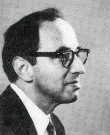 American historian of science noted for The Structure of Scientific Revolutions, one of the most influential works of history and philosophy of the 20th century. Kuhn introduced the idea of a “Paradigm” which allows only certain kinds of questions to be asked about a science while excluding others, until contradictions build-up to a point where a sudden change of Paradigm takes place, and the whole science is rapidly reconstructed under the “new paradigm”. Kuhn developed a kind of sociology of scientific community to study how these paradigms both constrained and promoted the development of scientific knowledge.
American historian of science noted for The Structure of Scientific Revolutions, one of the most influential works of history and philosophy of the 20th century. Kuhn introduced the idea of a “Paradigm” which allows only certain kinds of questions to be asked about a science while excluding others, until contradictions build-up to a point where a sudden change of Paradigm takes place, and the whole science is rapidly reconstructed under the “new paradigm”. Kuhn developed a kind of sociology of scientific community to study how these paradigms both constrained and promoted the development of scientific knowledge.
After studying Physics at Harvard, Kuhn did his PhD in the history of science and subsequently taught and wrote on the history and philosophy of science at Harvard, the University of California (Berkeley), Princeton and M.I.T. until his retirement in 1991.
In his first book, The Copernican Revolution (1957), Kuhn studied the development of the heliocentric theory of the solar system during the Renaissance. In his landmark second book, The Structure of Scientific Revolutions, he generalised what he described in the first book. In a conception which is strongly reminiscent of Hegel’s conception of the development of knowledge, he argued that scientific research always works within a certain “paradigm,” or closed system of concepts and methods which exclude dissident views which cannot be fitted into the system. During such a period of ‘normality’, researchers simply refine theories and develop their implicaitons; puzzling or anomalous results or facts are simply excluded. Over time, however, the weight of these anomalies builds up and eventually trigger a crisis in which attention is suddenly turned to what was previously ignored, basic assumptions and long-held opinions are overthrown and eventually some new way forward emerges and the old system of ideas falls into disrepute and the whole science is again reworked under the new “paradigm”.
Kuhn was a part of a widespread movement interested in Cognitive Science in the post-World War Two period. While sharing an element of social-relativism with Structuralism and Functionalism, Kuhn's theory has the great benefit of disclosing the inner dynamic hidden within an social structure.
Kuibyshev, Valerian (1888-1935)
Old Bolshevik in many important posts before becoming head of the country's chief economic body. Kuibsyhev became a dedicated Stalinist. The cause of his death is unknown.
Kun, Bela (1886-1937)
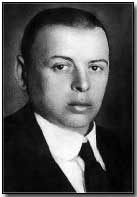 Hungarian, office worker, Social Democrat in 1902, journalist, then full-timer. Prisoner of war in Russia, joined Bolshevik Party in 1917, at end of 1918 founded Hungarian Communist Party a few months before heading short-lived Soviet Republic in Hungary in 1919. Took refuge in Moscow, political commissar in Red Army. Organiser of left current and Kommunismus during 1920–1. Joined Comintern small bureau in 1921, arrived in Germany just before March Action, for which he is generally seen as being responsible. Functionary in Comintern apparatus, arrested in 1937, executed without trial. Rehabilitated in 1956.
Hungarian, office worker, Social Democrat in 1902, journalist, then full-timer. Prisoner of war in Russia, joined Bolshevik Party in 1917, at end of 1918 founded Hungarian Communist Party a few months before heading short-lived Soviet Republic in Hungary in 1919. Took refuge in Moscow, political commissar in Red Army. Organiser of left current and Kommunismus during 1920–1. Joined Comintern small bureau in 1921, arrived in Germany just before March Action, for which he is generally seen as being responsible. Functionary in Comintern apparatus, arrested in 1937, executed without trial. Rehabilitated in 1956.
Kuron, Jacek (1934-2004)
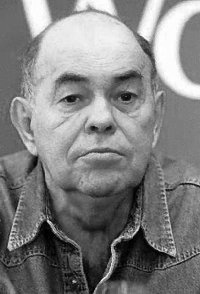 Jailed while a student at the University of Warsaw, and published the Open Letter to Polish Workers Party in 1965, the first programmatic document against Stalinism to come out of the Stalinist bloc since the Left Opposition; jailed 1967; he was supported by Trotskyists in the West. Founder of the KOR (Defence of Workers Rights) in 1976, a Marxist opposition group in defence of workers of Radom and Warsaw, which sowed the seeds of Solidarity. Made alliance with Catholic Church against Stalinism. Invited to join Solidarity as its chief adviser in 1980. Labour Minister in first Solidarity government; founded the Democratic Union in December 1990, which received the largest vote in the October 1991 elections, campaigning a more gradually transition to capitalism.
Jailed while a student at the University of Warsaw, and published the Open Letter to Polish Workers Party in 1965, the first programmatic document against Stalinism to come out of the Stalinist bloc since the Left Opposition; jailed 1967; he was supported by Trotskyists in the West. Founder of the KOR (Defence of Workers Rights) in 1976, a Marxist opposition group in defence of workers of Radom and Warsaw, which sowed the seeds of Solidarity. Made alliance with Catholic Church against Stalinism. Invited to join Solidarity as its chief adviser in 1980. Labour Minister in first Solidarity government; founded the Democratic Union in December 1990, which received the largest vote in the October 1991 elections, campaigning a more gradually transition to capitalism.
By the time of the 1993 elections situated on the right-wing of the Polish political spectrum. Quoted in 1989 stating: "What I would most wish is to be a social-democrat in a proper capitalistic country. But for that I have to build this proper capitalistic country first".
In late nineties he admitted this attitude was an error. He published many articles, criticising neoliberal transformation after 1989. In 2002 he published a book Dzialanie, which is an attempt to work on the theory of social movements and to construct an utopia for the post-capitalist era. He joined Polish section of the ATTAC association.
Kuruma, Samezō (1893-1982)
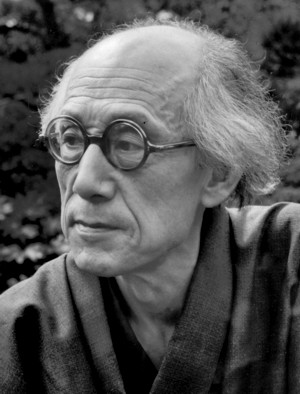 A Marxist economist who began his career as a researcher at the Ohara
Institute for Social Research. In the 1920s and 1930s, Kuruma
concentrated primarily on Marx’s theory of crisis and money and the
history of political economy. Following the Second World War, he
became a professor of political economy at Hosei University in Tokyo.
Kuruma was opposed to the effort made by Kozō Uno to “rewrite”
Marx’s theory of value, and in a 1957 book entitled Kachi keitai
ron to kōkan katei ron (Theory of the Value-Form and Theory
of the Exchange Process) Kuruma criticized Uno’s understanding of
Marx’s theory of the value-form. Other books by Kuruma include
Keizaigaku shi (History of Political Economy),
Kyōkō kinkyū (Investigation of Crisis), and
Kahei ron (Theory of Money). Kuruma spent the last two
decades of his life editing the 15-volume work, Marx-Lexikon zur
Politischen Ökonomie, which grouped together passages from
Marx and to a lesser extent Engels concerning a number of key topics
(competition, method, materialist conception of history, crisis, and
money).
A Marxist economist who began his career as a researcher at the Ohara
Institute for Social Research. In the 1920s and 1930s, Kuruma
concentrated primarily on Marx’s theory of crisis and money and the
history of political economy. Following the Second World War, he
became a professor of political economy at Hosei University in Tokyo.
Kuruma was opposed to the effort made by Kozō Uno to “rewrite”
Marx’s theory of value, and in a 1957 book entitled Kachi keitai
ron to kōkan katei ron (Theory of the Value-Form and Theory
of the Exchange Process) Kuruma criticized Uno’s understanding of
Marx’s theory of the value-form. Other books by Kuruma include
Keizaigaku shi (History of Political Economy),
Kyōkō kinkyū (Investigation of Crisis), and
Kahei ron (Theory of Money). Kuruma spent the last two
decades of his life editing the 15-volume work, Marx-Lexikon zur
Politischen Ökonomie, which grouped together passages from
Marx and to a lesser extent Engels concerning a number of key topics
(competition, method, materialist conception of history, crisis, and
money).
Kuusinen, Otto (1881–1964) .
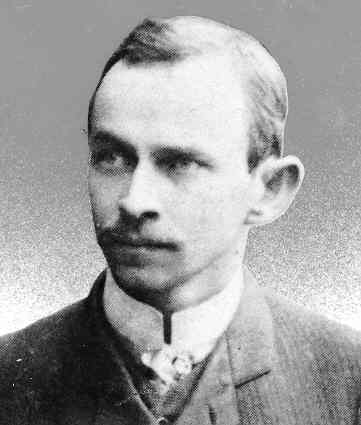 Finnish, Social-Democratic student, teacher of philosophy in 1905, took part in Revolution. Deputy and leader of Centre in Social-Democratic Party of Finland. Member of Provisional Government in 1918, joined Communist movement after defeat of Revolution, founded Communist Party of Finland. From 1921, Secretary of ECCI. Functionary in Comintern to 1939, then in Russian Party. Took part in de-Stalinisation process.
Finnish, Social-Democratic student, teacher of philosophy in 1905, took part in Revolution. Deputy and leader of Centre in Social-Democratic Party of Finland. Member of Provisional Government in 1918, joined Communist movement after defeat of Revolution, founded Communist Party of Finland. From 1921, Secretary of ECCI. Functionary in Comintern to 1939, then in Russian Party. Took part in de-Stalinisation process.